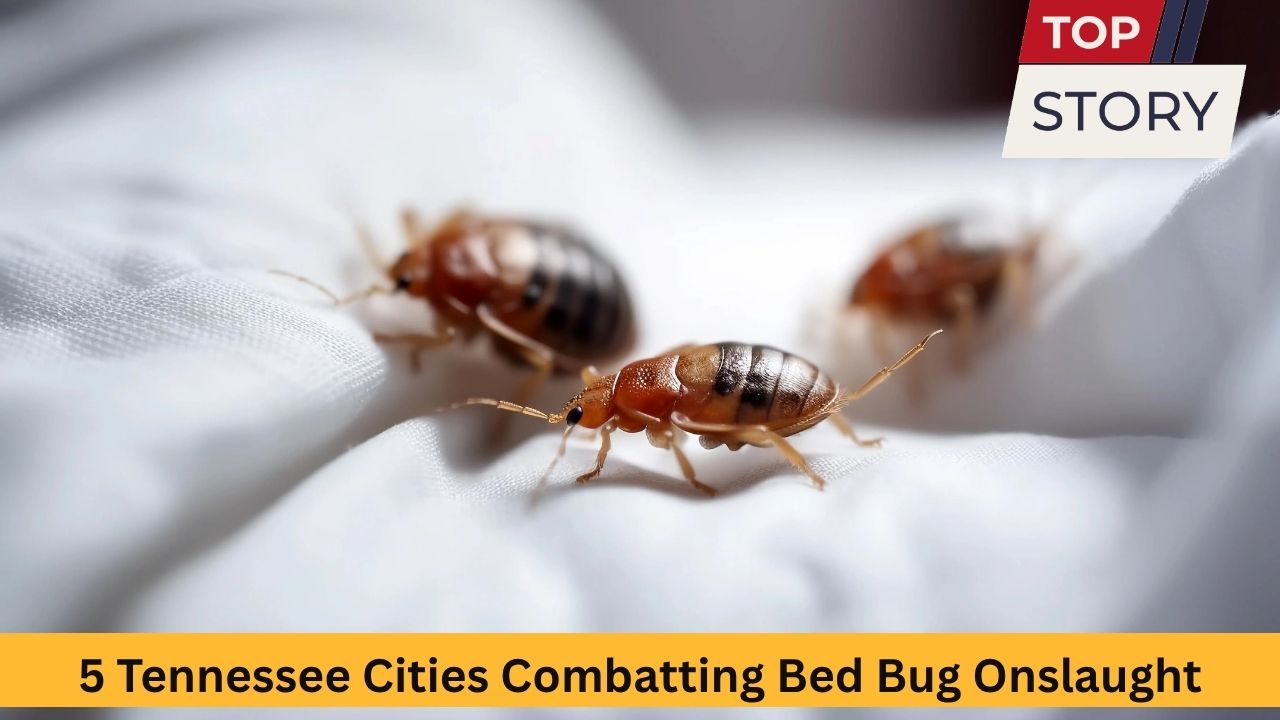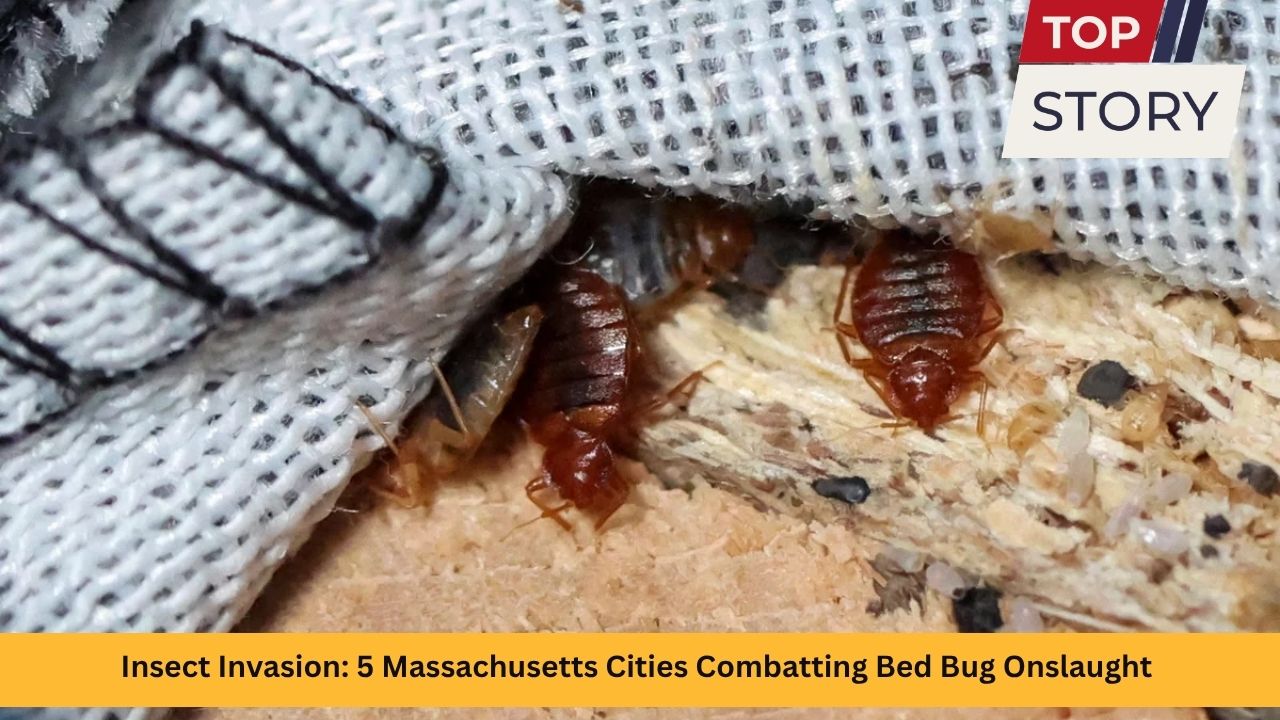Tennessee, known for its rich history, lively music, and scenic landscapes, faces a formidable adversary creeping within its borders: the bed bug. Once considered nearly eradicated in the U.S., bed bugs have made a determined comeback, with Tennessee consistently ranking among states with significant infestation issues. Residents, business owners, and health officials across the Volunteer State are increasingly engaged in a battle against these persistent pests.
Bed bugs are not just a nuisance—they are a costly and distressing challenge affecting both public health and local economies. Their ability to hitchhike via clothing, luggage, and even library books has made their spread both rapid and unpredictable. While bed bugs are not known to transmit disease, their bites can cause severe itching, sleep loss, and psychological stress among those affected.
This deep dive explores the five Tennessee cities most impacted by this bed bug invasion, analyzing local efforts, unique challenges, statistics, and strategies designed to reclaim homes and communities from these unwanted intruders.
Understanding Bed Bugs: Tiny, Tenacious Invaders
Bed bugs are small, reddish-brown insects that thrive by feeding on blood, primarily at night while victims sleep. Adults are about the size of an apple seed, lacking wings but exceptionally adept at hiding in cracks, mattresses, furniture, and even behind wallpaper.
These insects can survive months without feeding, meaning that even a vacant apartment can harbor a hidden infestation waiting to flare up. While their bites are the most noticeable sign, telltale clues include small rust-colored stains on sheets, shed skins, tiny white eggs, and a distinct musty odor.
Bed bugs are notoriously difficult to eradicate, primarily due to:
-
Their impressive ability to hide in tiny spaces.
-
Resistance to common pesticides, especially pyrethroids.
-
Rapid reproduction and adaptability to new environments.
The social stigma of having bed bugs often complicates detection and effective management, underscoring the need for community-wide vigilance and professional intervention.
The Tennessee Bed Bug Landscape
Once rare, bed bug sightings in Tennessee have grown alarmingly frequent. Two decades ago, only a fraction of the state’s counties reported known infestations. Today, the majority of counties—including metropolitan and rural areas alike—are fighting back against these resilient pests.
Urban centers and populous cities tend to be hit hardest. High volumes of travelers, transient populations in hotels and multifamily residences, and increased movement of second-hand goods all contribute to the spread and persistence of bed bug problems.
Spotlight on Five Tennessee Cities
Nashville: The Music City’s Unwelcome Guests
Nashville, the state’s capital and largest city, has the dubious distinction of ranking among the US cities with the highest incidence of bed bug infestations. Each year, pest control companies report a steady increase in service calls related to bed bugs in Nashville, placing it among the top thirty most bed bug-infested cities in the country.
The city’s vibrant tourism scene—drawing millions of visitors for conventions, music festivals, and sporting events—creates ideal conditions for bed bugs to spread. Hotels, Airbnbs, and even the homes of locals are at constant risk. Nashville’s fight against bed bugs has prompted local officials and pest control experts to launch educational campaigns and promote routine inspections, especially targeting hotels, rental properties, and schools.
Key facts about Nashville’s battle:
-
Bed bug calls increase during major tourism events.
-
Professional pest control companies report the majority of their bed bug jobs come from transient lodgings.
-
Property managers in multifamily complexes are required to follow strict protocols when bed bugs are reported, including immediate inspection of neighboring units and comprehensive treatment plans.
Residents are encouraged to be vigilant, checking mattresses and luggage regularly, and promptly reporting any signs of infestation to landlords or building management.
Knoxville: The Appalachian Epicenter of Infestation
Knoxville, situated in the eastern part of the state, has consistently appeared on national lists highlighting bed bug trouble spots. Its growing university population and sizeable rental market make it an active center for infestations.
Knoxville’s proactive approach includes cooperation between the city health department, University of Tennessee researchers, and local pest companies. Public education seminars, readily available information on pest control, and responsive housing policies have become key in the ongoing battle.
Important aspects of Knoxville’s response:
-
University dormitories and off-campus housing are regularly inspected.
-
Landlords must provide tenants with information on bed bug identification and prevention.
-
The city supports quick, coordinated responses to new reports across neighborhoods to prevent the spread to adjoining units.
Despite these efforts, recurring infestations in multi-unit housing present ongoing challenges, often requiring community-wide coordination and repeated interventions.
Memphis: Urban Dynamics and Bed Bug Battles
Memphis, located on the Mississippi River, is among Tennessee’s largest cities and features on national bed bug infestation lists. The city’s dense population, bustling travel hubs, and active trade of used furniture increase the risk factors for pervasive infestations.
Hotels, apartments, and public housing units have borne the brunt of outbreaks in Memphis, prompting city health inspectors and pest control agencies to step up detection and treatment protocols.
Memphis’ key strategies:
-
Mandatory bed bug inspections in hotel guest rooms and regular audits of high-risk apartment buildings.
-
Public health campaigns directed at vulnerable communities, especially in low-income and elderly housing.
-
Financial aid programs for residents unable to afford professional pest control.
Locals are urged to inspect second-hand items and report any concerns to property management immediately, contributing to greater citywide awareness and faster responses.
Chattanooga: Rising Tourism and Persistent Pests
Chattanooga’s rise as a tourism and convention hotspot has, unfortunately, paralleled a growth in bed bug infestations. The city’s unique blend of historic hotels, short-term rentals, and thriving downtown apartments makes it susceptible to the rapid spread of bed bugs.
Health officials in Chattanooga utilize a combination of monitoring programs, public outreach, and robust cooperation with hotel managers to curb the spread. The city also places strong emphasis on training housecleaning staff to recognize and report early signs of infestation.
Chattanooga leads the way in:
-
Piloting detection devices in hotels and multifamily housing.
-
Hosting free workshops for landlords and residents on bed bug prevention.
-
Encouraging local businesses to adopt rapid response protocols to keep infestations contained.
Chattanooga’s efforts reflect the necessity of a comprehensive, community-based approach.
Clarksville: Military Connections and Bed Bug Concerns
Clarksville, home to Fort Campbell and a significant military community, brings unique challenges to bed bug control. The continual movement of personnel and families in and out of military housing increases Clarksville’s vulnerability to infestations that can quickly leap from base to civilian housing.
Efforts in Clarksville focus on early detection, swift containment, and education. The city partners with military housing authorities to provide regular training and resources to both service members and their families.
Features of Clarksville’s initiatives:
-
Periodic inspections of military barracks, base housing, and nearby apartment complexes.
-
Pre-move-in briefings for military families on how to detect and avoid bringing bed bugs into their homes.
-
Rapid deployment of pest management teams to reported hotspots, minimizing potential spread.
Clarksville demonstrates the importance of tailored strategies in cities with unique populations and housing circumstances.
The Cost of Bed Bug Infestations
Bed bug infestations in Tennessee can be financially and emotionally draining. Nationwide, the cost of professional bed bug treatments tallies hundreds of millions of dollars annually. In Tennessee cities, treatment can range from a few hundred to several thousand dollars per home, depending on severity and recurrence rates.
Other indirect costs include:
-
Lost revenue for hotels and rental properties.
-
Negative impacts on tourism and city reputation.
-
Increased absenteeism at work or school due to physical discomfort and emotional stress.
-
Costs associated with disposing of infested furniture and clothing.
Early intervention and prevention remain the most cost-effective approaches.
How Tennessee Cities Are Fighting Back
Proactive Monitoring and Rapid Response
Cities are leveraging technology and professional expertise to detect bed bugs early. Passive monitoring traps, regular inspections, and trained detection dogs are increasingly common in public facilities and multifamily properties.
Immediate investigation and containment help limit the damage, especially in apartment complexes where infestations can spread through shared walls and utilities.
Public Awareness and Community Engagement
Widespread educational campaigns target hotel staff, landlords, tenants, and homeowners. These efforts emphasize recognizing the early signs of infestation, minimizing stigma, and encouraging prompt reporting.
Workshops, informational leaflets, and online resources offer guidance on prevention, inspection, and safely removing infested belongings.
Partnerships With Pest Control Professionals
Due to the complexity of eradication, Tennessee cities actively partner with certified pest control companies. Strategies combine chemical treatments, targeted heat application, and follow-up inspections.
Pest management contracts often require:
-
Documentation and reporting after each service.
-
Tenant or guest cooperation in preparing spaces for treatment.
-
Repeat visits to confirm total elimination.
These professional standards help raise success rates and public confidence in eradication efforts.
Support for Vulnerable Populations
Particular attention is given to low-income, elderly, and disabled residents, who statistically face higher risk and have fewer resources for combating bed bugs. Cities allocate funds for treatment assistance, provide access to professional consulting, and mandate response protocols in public housing.
Support can include temporary accommodations for residents during thorough treatments or replacement of infested furnishings at low cost.
Stats and Facts: Bed Bugs in Tennessee
-
Bed bugs are confirmed present in the vast majority of Tennessee’s counties.
-
Nashville and Knoxville ranked among the top 35 U.S. cities for bed bug infestations based on major pest control company data.
-
The average cost of eradicating bed bugs from a single apartment can range from several hundred to over a thousand dollars, with multifamily buildings incurring even greater expenses due to the need for repeated interventions and tenant relocation services.
-
University dormitories, public housing, and hotels remain high-risk environments for outbreaks.
-
Multifamily dwellings in major cities have experienced infestation rates significantly above the national average over the past decade.
Tips for Residents and Travelers
Vigilance and personal responsibility can help prevent and control bed bug outbreaks:
-
Always inspect hotel rooms before unpacking, focusing on mattresses, headboards, and luggage stands.
-
Avoid placing suitcases on beds or carpets.
-
Launder clothing in hot water immediately after returning from travel.
-
Check second-hand furniture carefully before bringing it home.
-
Notify property management or pest control professionals at the first sign of bed bugs.
Routine awareness and immediate response are essential for protecting homes and communities.
The Psychological Toll
While bed bugs are not known to transmit disease, their presence can contribute to significant psychological stresses. Residents often report anxiety, sleeplessness, and embarrassment, sometimes leading to social isolation or even mental health concerns. Tennessee’s response includes increased mental health support, especially for vulnerable groups affected by persistent infestations.
The Road Ahead: Continuing the Fight
The bed bug problem in Tennessee is multifaceted, demanding ongoing vigilance, cross-sector cooperation, and public education. Though progress is visible, especially in the rapid mobilization of response teams and heightened community awareness, continued investment is required to keep these pests in check.
As travel, urbanization, and second-hand commerce grow, bed bugs will likely remain a challenge for Tennessee’s cities. Residents are urged to stay informed, act decisively, and participate in community prevention programs.
The commitment of major cities like Nashville, Knoxville, Memphis, Chattanooga, and Clarksville offers hope that Tennessee can stem the tide of this persistent insect invasion—one bed, one building, and one neighborhood at a time.












Leave a Reply